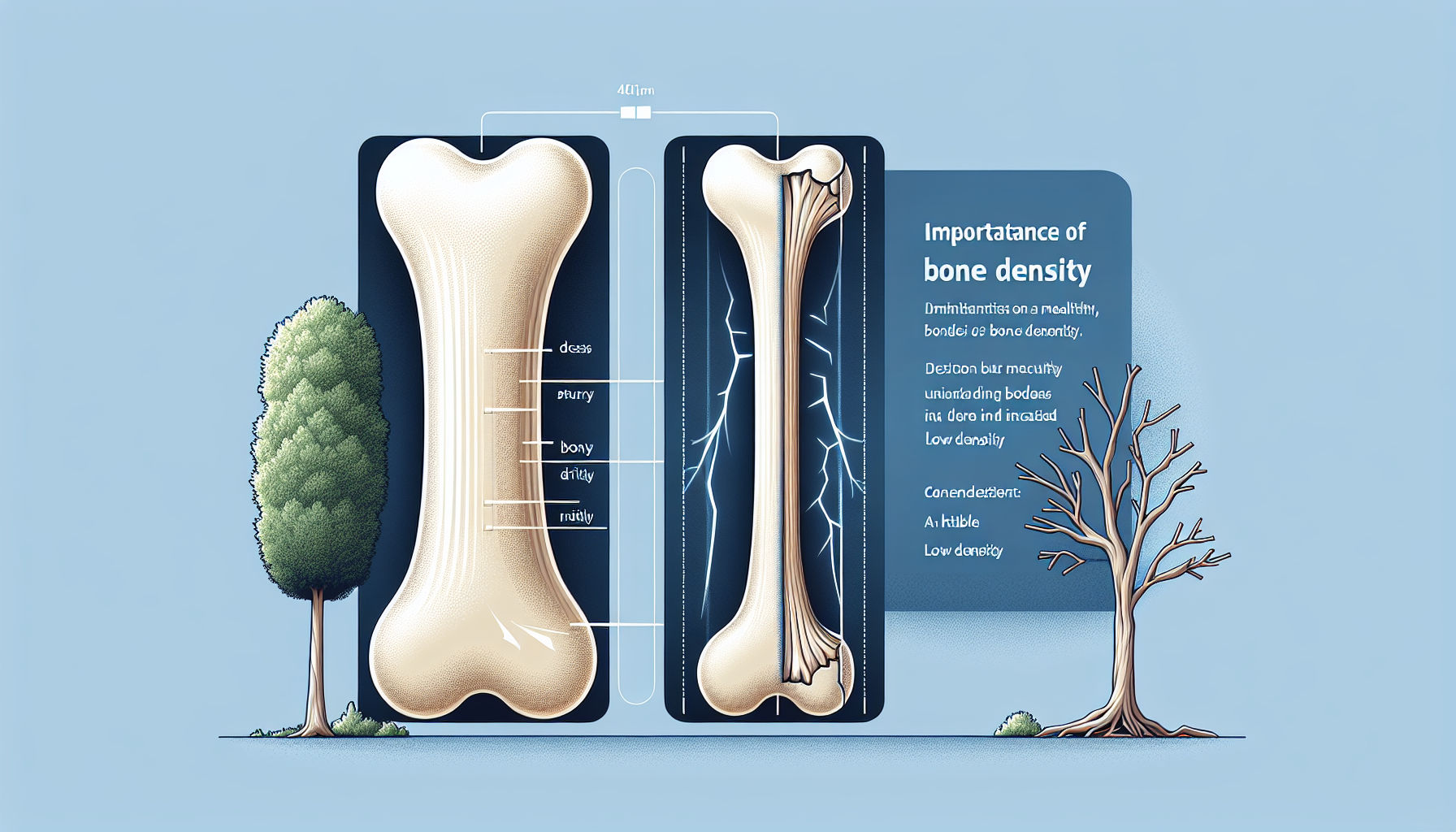Bone density is a crucial factor in determining the strength and durability of our skeletal structure. It is defined as the amount of mineral matter per square centimeter of bones. Healthy bone density is essential not only for physical stability but also for preventing injuries, particularly as we age. This article aims to provide a comprehensive overview of the importance of bone density in injury prevention and how to maintain it through lifestyle choices and dietary habits.
Understanding Bone Density
Bone tissue undergoes continuous remodeling throughout life, balancing bone formation and resorption. In our younger years, bone formation outpaces resorption, leading to an increase in bone mass. However, as we age, this balance can shift, resulting in a gradual loss of bone density, which can lead to conditions such as osteopenia and osteoporosis. These conditions weaken the bones, making them more susceptible to fractures and other injuries.
The significance of maintaining bone density cannot be overstated, especially when considering the potential impact of bone-related injuries on overall health and mobility. For example, hip fractures are a common and serious consequence of low bone density, leading to a decline in independence and quality of life for many older adults.
To understand the direct connection between bone health and injury prevention, you may refer to Bone Health, which offers insights into the structure and function of bones, the factors that influence their health, and strategies for maintaining bone density throughout life.
Factors Influencing Bone Density
Several factors can influence bone density, including genetics, hormonal levels, dietary intake of calcium and vitamin D, physical activity, and lifestyle choices such as smoking and alcohol consumption. For instance, estrogen plays a vital role in maintaining bone density in women, which is why postmenopausal women are at a higher risk of developing osteoporosis.
To address the impact of lifestyle on bone density, consider reading The Significance of Lifestyle in Bone Density Conservation to explore how daily habits can affect bone health and learn ways to make positive changes.
Nutrition and Bone Health
A well-balanced diet rich in calcium and vitamin D is essential for bone health. Calcium is a primary building block of bone tissue, while vitamin D helps the body absorb calcium more efficiently. Sources of calcium include dairy products, leafy green vegetables, and fortified foods. Sunlight exposure is a natural way to boost vitamin D levels, but supplements may be necessary for those with limited sun exposure or dietary restrictions.
For those seeking alternative sources of calcium due to dietary preferences or intolerances, Dairy Alternatives for Lactose Intolerant Individuals Seeking Calcium provides a list of non-dairy foods and supplements that can help maintain adequate calcium levels.
Exercise and Bone Strength
Physical activity, particularly weight-bearing exercises, is known to stimulate bone formation and increase bone density. Activities such as walking, running, and resistance training apply stress to the bones, encouraging them to grow stronger.
For a deeper dive into this topic, The Effects of Low-Impact Exercise on Bone Strength sheds light on how various forms of exercise can benefit bone health without putting undue strain on the joints.
Preventive Measures and Treatments
In addition to nutrition and exercise, preventive measures such as regular bone density screenings can help detect early signs of bone loss. Treatments for low bone density include medications that either slow down bone resorption or stimulate bone formation, as well as lifestyle modifications to reduce the risk of falls and fractures.
For insights into how menopause affects bone density and ways to counteract this, reading Strategies to Combat Bone Density Decrease in Menopause can be helpful.
External Resources
To further support the points made in this article, here are some niche and specific resources:
- International Osteoporosis Foundation: Offers comprehensive information on bone health, including global data on osteoporosis and educational resources for patients and healthcare professionals.
- National Institute of Arthritis and Musculoskeletal and Skin Diseases (NIAMS): Provides detailed guides on bone health and disease prevention, including research updates and community resources.
- Bone Health and Osteoporosis Foundation: Focuses on patient support and advocacy, featuring personal stories and expert advice on managing bone health conditions.
- Journal of Bone and Mineral Research: Publishes peer-reviewed articles on the latest scientific developments in bone and mineral metabolism.
Conclusion
Bone density plays an undeniable role in injury prevention, particularly as we navigate through different stages of life. By understanding the factors that affect bone health, adopting a nutrient-rich diet, engaging in regular physical activity, and being proactive with preventive care, we can significantly reduce the risk of bone-related injuries and maintain a higher quality of life.
The journey to strong bones is a lifelong commitment. It is never too early or too late to start focusing on bone health. Take the first step today by assessing your current lifestyle and making the necessary adjustments to ensure that your bones remain healthy and robust for years to come.



